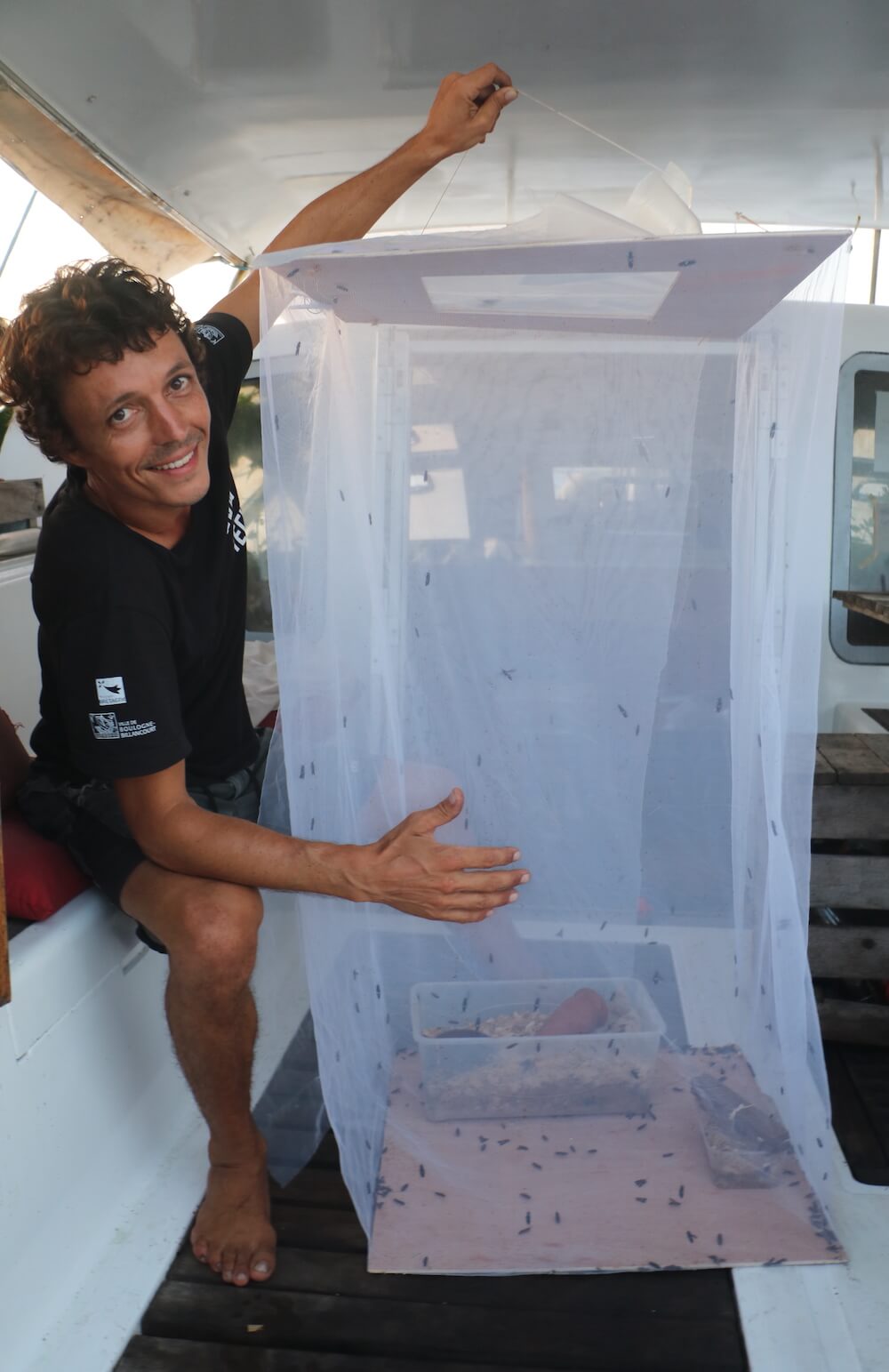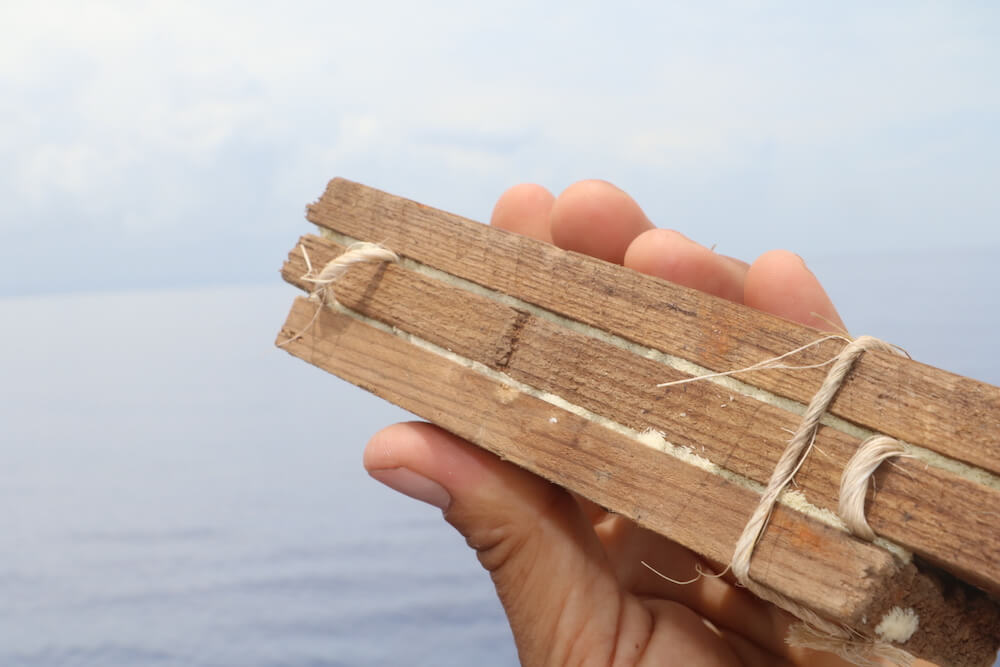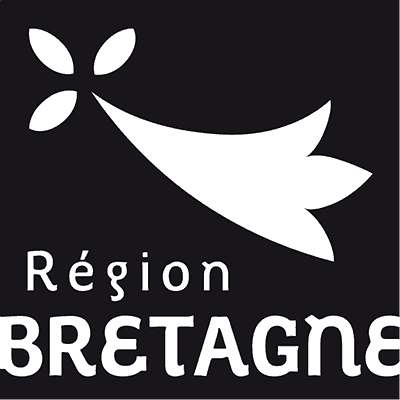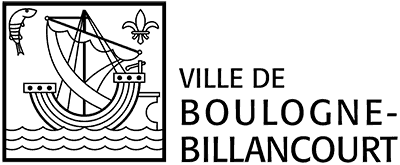[NOMADE DES MERS] From Panama to Cuba
Date of publication: 24th june 2021
Writers: Caroline Pultz
Place: Havana, Cuba
Sailing to Cuba: sun and grains(es) #
The weather conditions were impeccable: great sun and some wet grains. A crossing crowned by an average of 6 knots throughout (the equivalent of the speed of a runner on foot) against 4 unfortunate knots usually. Results of the races: we crossed 1300 km from Panama to Cuba in 5 and a half days with 25 L of diesel for 2 people. Like a taste of low-tech Vendée Globe for Nomade des Mers!
This journey did not stop at the weather grains: we took advantage of this fantastically fast navigation to revive our sprouted seed crops, but this time with new sprouts. A pleasure to eat fresh products in the middle of the ocean!
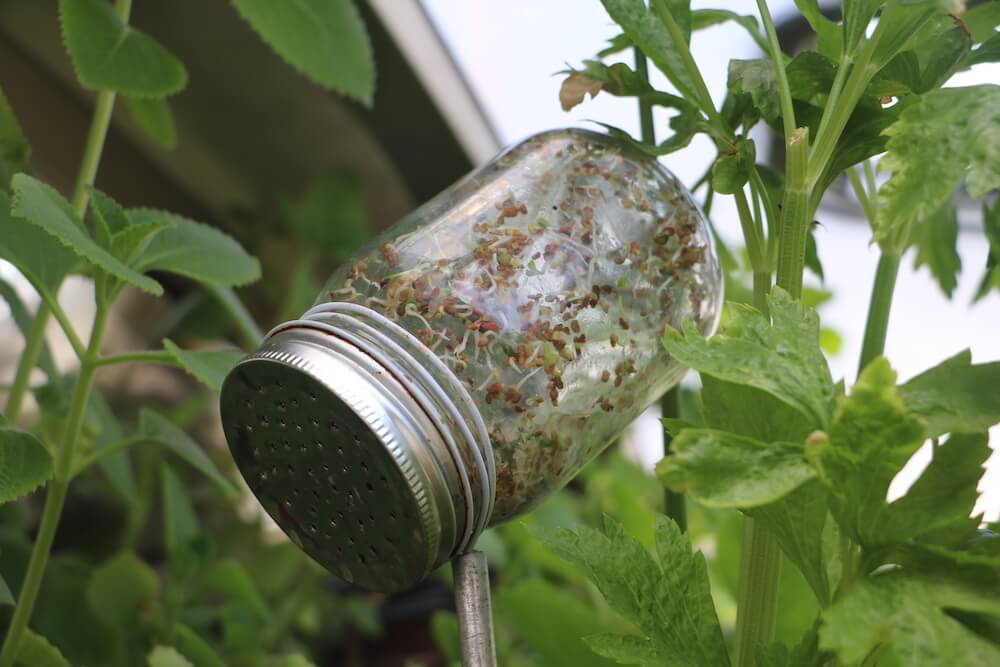
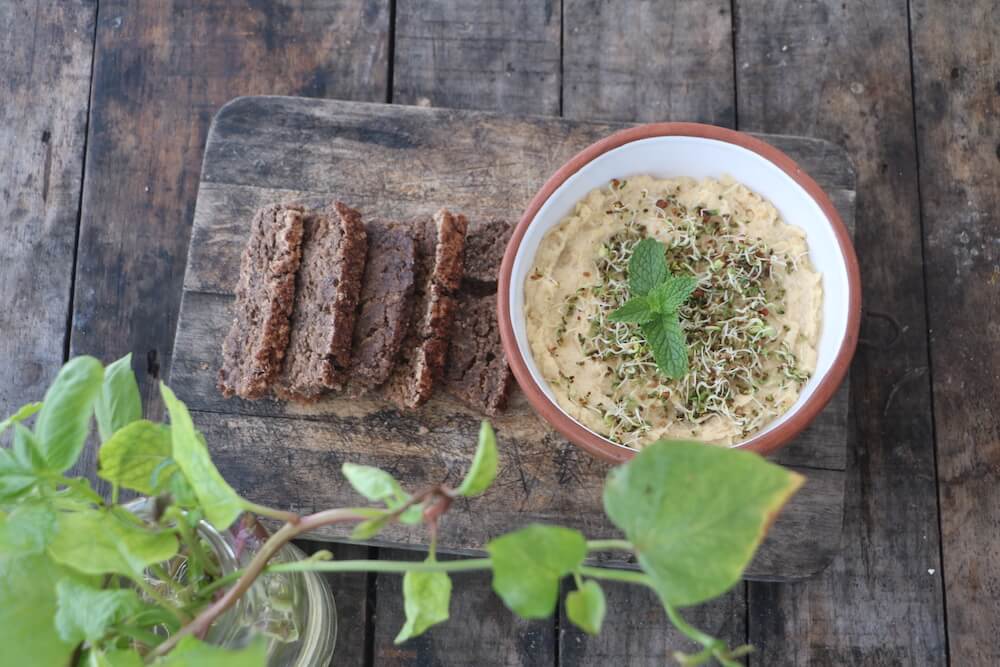
We got you the hit of the summer #
Speaking of cooking, we have a new favorite at the moment: the solar tube of Solar Brother in DIY version!
The principle of the solar tube concentrator is as follows: a reflector concentrates the rays of the sun towards a tube with double walls of glass under-vacuum (as in a thermos). The latter ensures thermal insulation so efficient that the temperature rises to 200°C in a very short time and without smoke! Another advantage: the vacuum tube keeps the cooking heat even during cloudy periods.
We built a first prototype reflector with an adhesive mirror. Our first cooking tests were a success. Grilled vegetables, apple crumble and the last one (we are proud of it): the longest chocolate cake ever made on board (60 cm!). It’s a real treat.
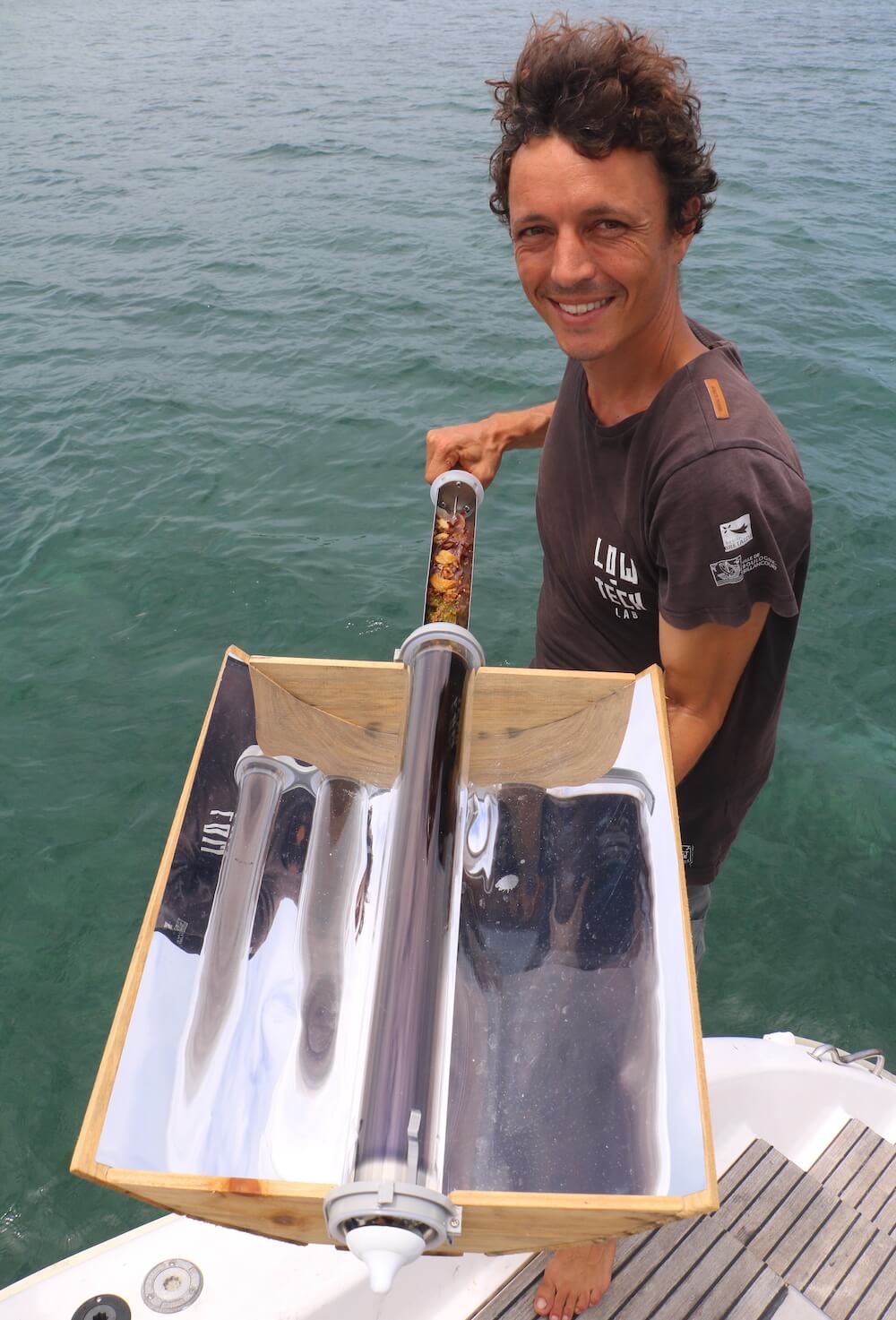
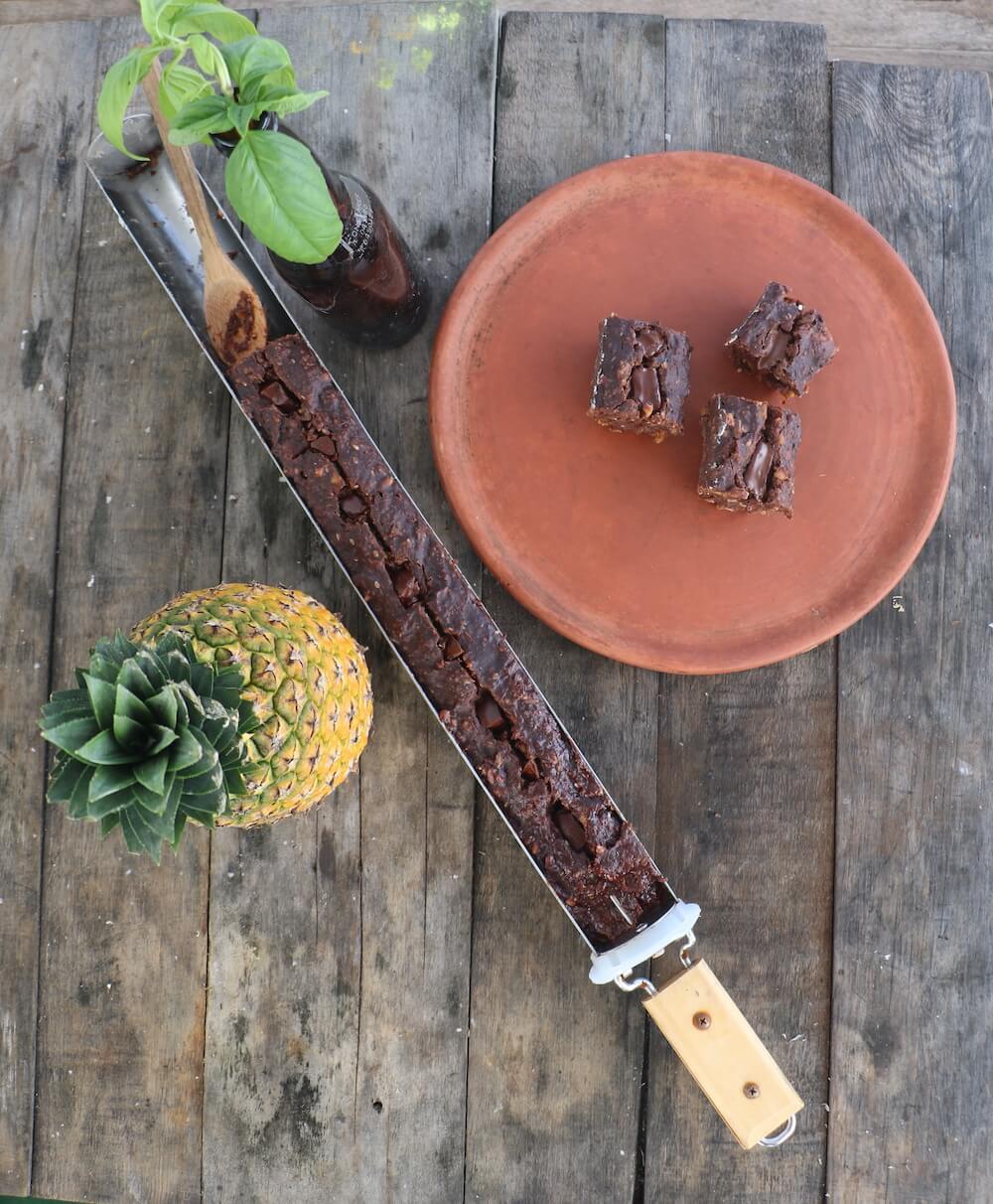
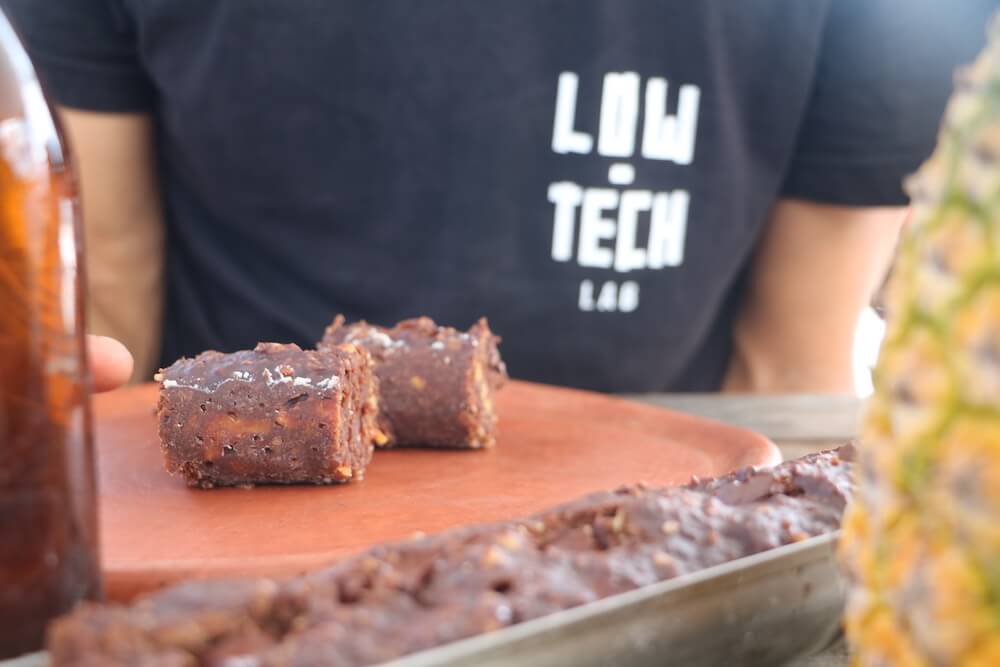
Cuba, first stop in the south #
We do not hide our anguish at being refused plants, crickets, flies and spirulina when we arrive in Cuba. It is in Cayo Largo that we do our entry papers and fortunately, the agent of the Ministry of Agriculture, curious, just asked us the name of all the plants. What luck!
Generally speaking, the situation in Cuba is very difficult because, in addition to the health crisis, there is a deep economic crisis. The causes of Cuba’s poor economic health are manifold and have undermined the country’s attempts to liberalize. The pandemic that limits tourism further weakens the Cuban people: the lack of foreign currency leads to a very significant increase in the price of imports. The abolition of the second local currency, tourist currency (UCC), has led to prices sometimes multiplied by four or five since 1 January. Destructive blow for the locals.
It is impossible for us to find fresh food without a government-supplied food ticket (not enough food tickets to finish the month with dignity). By observing the empty shelves of grocery stores, we decided to increase the production of spirulina and plants in the biopony system on board.
Sailing into Havana #
This time, the Nomade des Mers is moving in slow motion. Sargassum are suspected of slowing down the boat (they are algae that invade the Caribbean). The conditions are still good for tinkering and cooking a little: the solar lamps are repaired, the lactofermentations relaunched and we take the opportunity to make space on board…
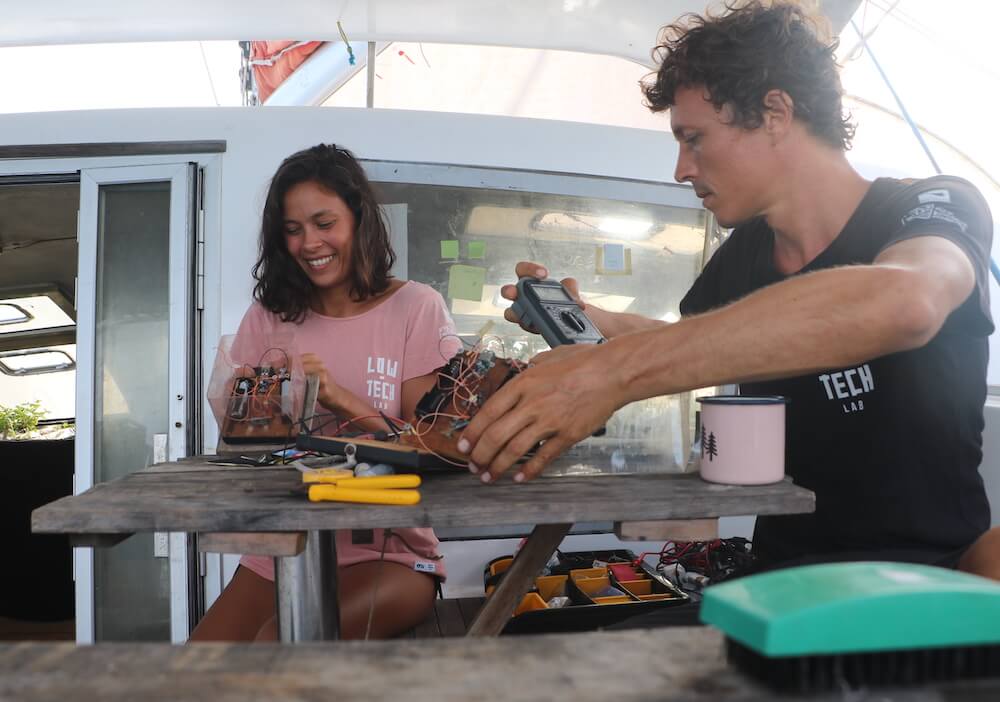
The crew has grown! #
During these 7 days of navigation, our crew expanded with an explosion of births of black soldier flies. Smiling to the ears, we have enlarged the aviary, commonly called “the love cage” in which the flies dance to mate and procreate the next generations of larvae. At the heart of our ecosystem, they degrade our organic kitchen waste as well as our dry toilet compost! In just a few days we get a quality compost and some of the larvae become proteins for our crickets. Good news: they seem to like their new habitat, given the sheer quantity of eggs!
